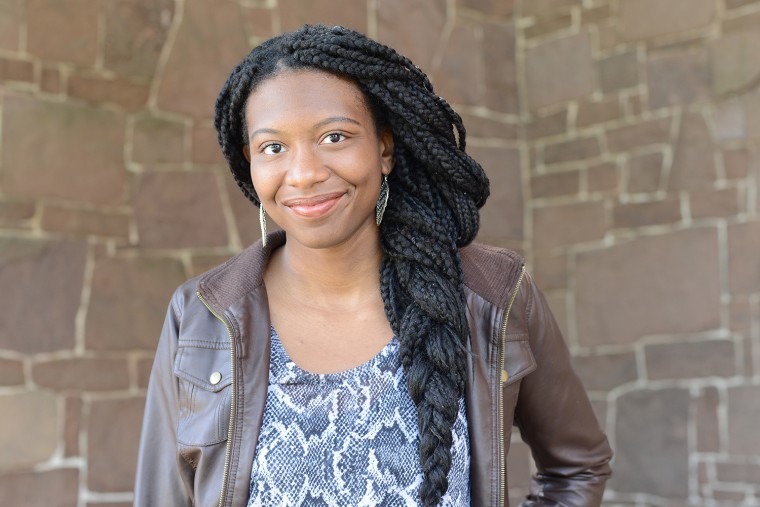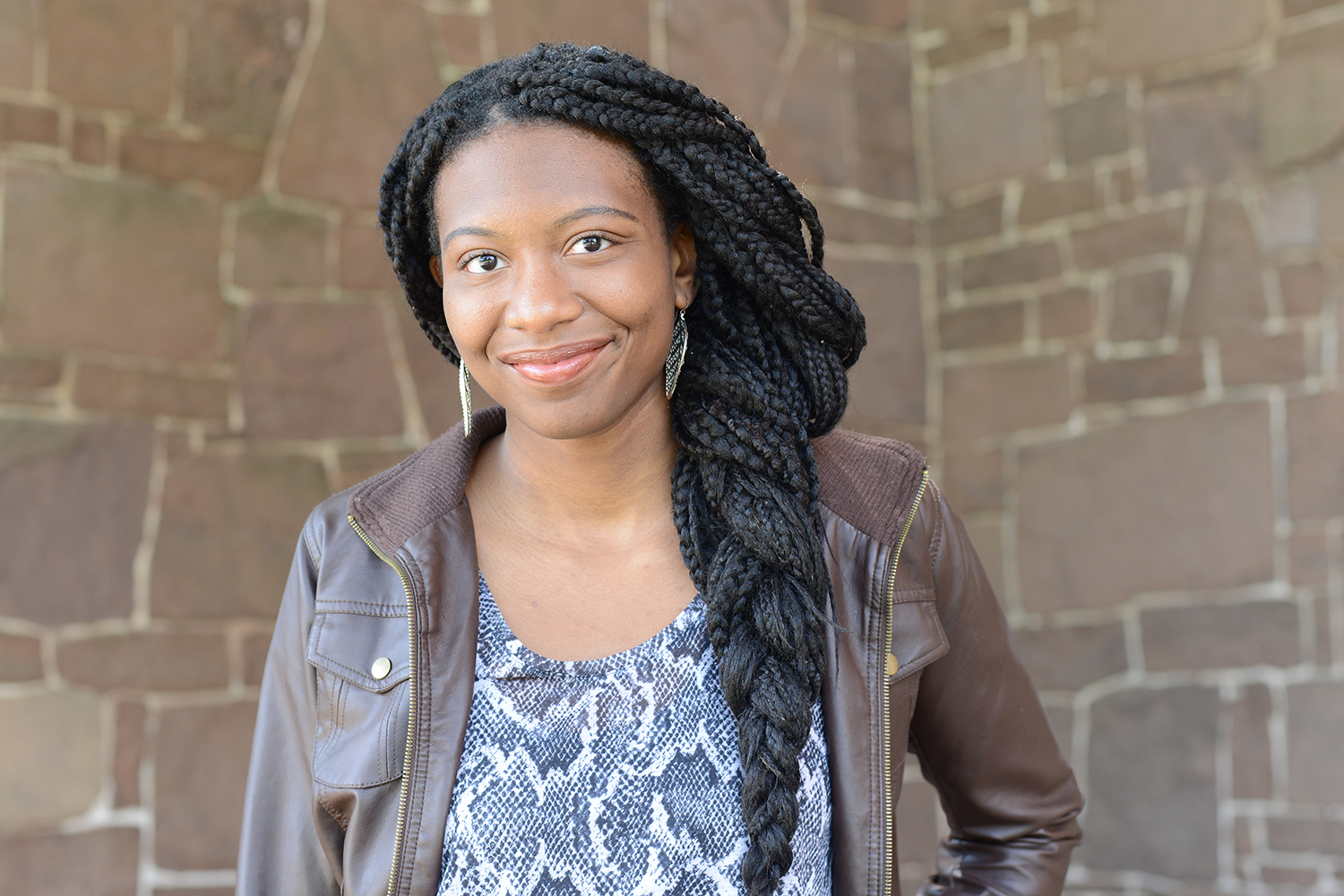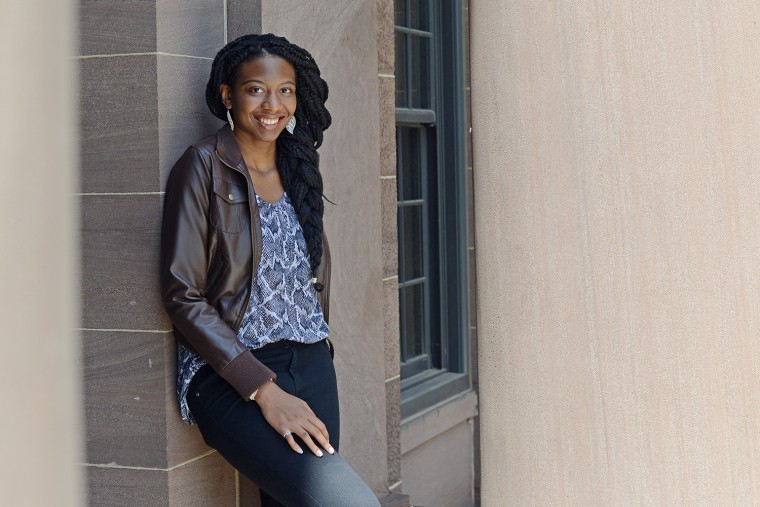Uchendu ’17 Researches Production of Biofuels as McNair Scholar


In this News @ Wesleyan story, we talk with Stacy Uchendu from the Class of 2017. Uchendu is participating in Wesleyan’s Ronald E. McNair Post Program, which assists students from underrepresented groups in preparing for, entering and progressing successfully through post-graduate education.
Q: Stacy, where are you from and what is your major?
A: I’m from Houston, Texas, and my major is Science in Society with concentrations in chemistry and religion.
Q: When did you become a part of the McNair Program? Why did you decide to participate?
A: McNair offers a wonderful opportunity to do paid research over the summer and during the academic school year. It also offers support to underrepresented students who aspire to earn PhDs. Since I’m working towards an MD/PhD, it was only natural that I apply for the program and take advantage of the resources offered.
Q: Which professor are you working with?
A: I work with Erika Taylor (assistant professor of chemistry, assistant professor of environmental studies). She was the professor for the first semester of Organic Chemistry, and the course material and the way she taught it made me so excited about research in that field. I asked to join her lab, and after a trial period she accepted me! She is definitely one of the best professors to have as a research mentor and I am so grateful I get to be a part of the Taylor Lab.
Q: What does a typical day look like in the program?
A: When I arrive at the lab in the morning, I do my research work, which may include running diagnostic gels, preparing DNA/ protein, or doing kinetic assays. Depending on the day, the McNair Program may have afternoon workshops pertaining to grad school or nighttime GRE prep.
Q: Please tell us about the research you’re working on.
A: My research deals with the production of second-generation biofuels via the degradation of lignin, an abundant paper production byproduct. The protein I am working with, Des B, is an extradiol dioxygenase enzyme derived from the bacterium Sphingobium sp. SYK-.‐6 that cleaves the aromatic rings that comprise lignin and allows lignin’s depolymerization products oxaloacetate and pyruvate to go through the Kreb’s cycle. I am doing kinetic assays of Des B, which will lead to a better understanding of Des B (and lignin degradation) and will hopefully also lead to improvements in biofuel production.
Q: The McNair Program also helps students prepare for graduate school. What activities or lessons have you found most helpful in this regard?
A: McNair offers several workshops and resources pertaining to the graduate school process like financial planning, study skills, GRE prep and school visits. I think one of the most helpful activities was the visit to Brown University’s graduate school and meeting with some of the PhD students. It allowed me a chance to ask questions about the kind of life graduate students have and how they cope with the stresses of their research. The visit truly gave me an idea of how my own life could be as a grad student.

Q: Do you plan to continue working with Professor Taylor after this summer? How so?
A: There is a lot of technique that goes into anaerobically purifying protein and analyzing its kinetic activity, especially since we live in an oxygenated environment! A good portion of my time in lab this summer has been spent growing my protein and perfecting my technique as to ensure that my protein has minimal exposure to oxygen and therefore can have the best possible kinetic activity. When the academic school year begins, I will be putting my skills into action doing my actual data collection.
Q: What has been the most rewarding element of the program for you?
A: Hands-on experience in the lab. I have always dreamed about being a scientist and now I am actually living it out!
Q: How would you describe the community of students in the program?
A: McNair scholars are very supportive towards one another, as many of us have similar experiences being underrepresented students in our respective fields. We can relate and encourage each other in our research experiences, especially during research frustrations.
Q: What activities are you involved in outside the classroom at Wesleyan?
A: I lead a book club for outpatients at River Valley Services, I am treasurer of the African Student Association, I write poetry and short stories, I love reading fiction and philosophy/religion books, and so many other things!
Q: What are your plans for after graduation?
It is not definitive yet, but I am considering doing a master’s at Wesleyan as a continuation of my research, or perhaps volunteering internationally for a few years as part of the Peace Corps. I ultimately want to get an MD/PhD so I can do pharmacological research while personally caring for the people that will be helped by my research.

